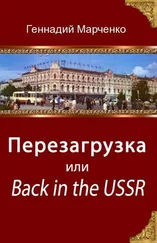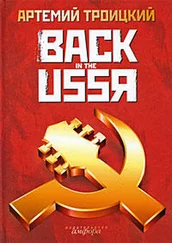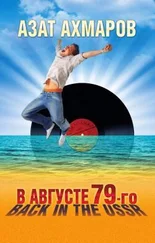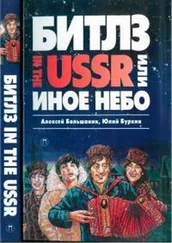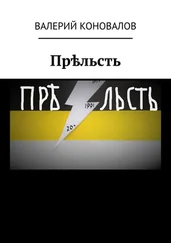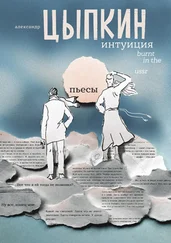I have not been out of Ashkhabad for twenty-four hours before I’m robbed of my documents. In Krasnovodsk I meet an alkash with a cruel hangover and invite him for a drink. While we are seeing off our third half-litre he crowns me with a bottle. I wake up to find my pockets empty. At least I had the foresight to hide my money in a pouch under my collar. I’m not badly hurt but a few splinters of glass have embedded themselves in my scalp. ‘Well, old son,’ I tell myself, ‘they say you’re never too old to learn, but it seems you’ll remain a fool till you die. Choose your drinking partners more wisely in future.’
I think it better not to hang around any longer waiting for Death. Without my release papers any cop could stop me and send me back to camp. Besides, I want to get out of Krasnovodsk. It is winter and the town is scoured by a cruel, sand-laden wind. I take a ferry to Baku and then a train to Tblisi.
* * *
According to legend, Bogdan Khmelnitski of Ukraine once summoned all the vagabonds in his kingdom to Kiev. He ordered straw of the best quality to be spread for them on the city’s main square. When the tramps arrived they laid themselves down gratefully and went to sleep. Then Khmelnitski ordered the straw to be lit around the edges. As their bed blazed the tramps called out: “We’re burning! Save us!” but none lifted a finger to help themselves. When the flames began to lick his feet their chief shouted: “How lazy you are, brothers! Why don’t you cry out that I too am on fire?”
Soviet railway stations are like that square in Kiev. Their warmth and 24-hour beer stands lure us vagrants like wasps to a jam jar, making it easy for the police to pick us up. We’re aware of the danger but it makes no difference. In Tblisi I spend a few days hanging around the station, drinking in the buffet and trying to snatch a few hours’ sleep in dark corners. Eventually my luck runs out. I am arrested and taken to the spets.
My cell is crammed with bare bunks. The small barred window lets in no sun so its light bulb burns around the clock. I’ve been drinking heavily for the past few days and fear the horrors will come on while I’m alone in the cell with no mental distractions.
“Hey, boss, give us a paper to read,” I ask the sergeant when he brings my dinner. As I was being led to my cell earlier I noticed a pile of newspapers on a shelf in the corridor.
“They’re old papers,” says the sergeant.
“So what if they are. I’m bored to death,” I insist.
“Do you really want something to read?”
“Well I’m not going anywhere in a hurry.”
“Okay we’ll give you a paper,” there is a tinge of spite in his voice. An hour later the door opens and he throws in four newspapers. Eagerly I snatch them up and then drop them in disappointment. They are Georgian. I can make no sense of the tiny worm-like letters writhing over the pages.
As I pace around the cell I remember a Conan Doyle story called The Little Dancing Men , in which Sherlock Holmes deciphers a code made up of matchstick figures. Following his example, I resolve to make sense of those worms. However, unlike the great detective, I do not understand the language I am deciphering. The only Georgian word I know is ‘beer.’ Nevertheless, I remember that most surnames end in ‘shvili,’ so by looking for groups of five letters I’m able to work out the characters for sh, v, i and l. The paper’s masthead ‘Communist’ is written in both Russian and Georgian, so that gives me 11 letters altogether. Pictures of Brezhnev and the cyclist Omar Pkhakadze add to my lexicon. Towards evening I am reading the paper aloud without understanding a single word. When the sergeant looks into my cell he can’t believe his ears. He throws in a packet of Prima .
Reading helps pull me through my hangover. The guards tell me the odd word of Georgian which I have to memorise immediately as I’m not allowed pen or paper. Unfortunately my solitude soon ends. My cell fills with tramps and their endless discussions about where they have drunk and how much, what the women were like and who beat the shit out of whom.
While exercising in the yard, I see an old man sitting by the wall. He looks vaguely familiar. I go over and — oh Lord — it’s Igor Alexandrovich. He has aged. Now he resembles a decrepit old lion whose shaggy black mane is grey at the roots where filth has not yet penetrated. Igor Alexandrovich screws up his eyes and studies me for a long time. Finally he mumbles: “Ivan Andreyevich! Is it you?”
“The very same.”
“Have you been here for a long time?”
“I’ll be out in a week.”
“Which cell are you in?”
“Six.”
“Would you be so kind as to take me in? Do you have enough room?”
“We’ll make some.”
Igor Alexandrovich jumps up and comes over to me. Bending his head close to mine he whispers: “Do you have lice in there?”
“Not until now,” I reply, catching sight of a huge louse on his coat lapel. I point to it. Despite his poor sight, Igor Alexandrovich catches his household pet with a deft pinch and for some reason drops it into his pocket. Our exercise period ends and we are locked up again.
A tramp in my cell says that for the last few months he has seen Igor Alexandrovich begging in the subway near the Collective Farmer cinema. “When he has enough money he runs to the chemists for eau de Cologne, which he drinks from the bottle right there in the shop. When he gets too cold and tired in the subway he goes to the Collective Farmer . The cashier usually lets him in without paying. He sleeps through the double bill of Indian films, warms up a bit and then returns to his pitch in the subway. At night he dosses in a basement in Chelyuskintsev Street.”
That evening the guards bring Igor Alexandrovich into our cell. They have sheared his mane and treated him to a half-hearted disinfection process. To keep him at a distance we put him to sleep on a separate bunk which we call the thieves’ bed. Igor Alexandrovich takes this as a mark of special respect.
That evening he entertains us with a monologue on Rasputin. Our cell mates listen open-mouthed. Believing Rasputin to have been the lover of Catherine the Great, they hope to hear some dirty stories. Encouraged by his audience, Igor Alexandrovich strides up and down the cell, gesticulating wildly. Suddenly he stops in the middle of a word and crashes to the floor with an demonic cry. White foam bubbles from the corners of his mouth. We rush to help him, trying to make sure he doesn’t bite his tongue. I have seen alcoholic epilepsy before in people who stop drinking too abruptly. We bang on the door, calling for a doctor, but the nurse has already gone home and the guards can’t be bothered to ring for an ambulance.
Gradually Igor Alexandrovich’s trembling ceases and he falls asleep, snoring loudly through his nose. We lift him onto his bed. We’re all frightened. Perhaps every one of us is thinking to himself, ‘That’s my fate too.’
When Igor Alexandrovich awakens he remembers nothing. He rises and paces about the cell. We are all silent. He comes up to me, his head trembling: “Could you tell me the time please?”
“I left my watch at home on the piano.”
“Yes, yes, it is easily done,” he nods. “And may I ask what your name is, if that is not confidential?”
“Pushkin, Alexander Sergeyevich.”
Igor Alexandrovich knocks at the cell door asking to be let out. When the sergeant comes he asks: “Would you be so kind as to tell me where I am?”
“Up your arse,” replies the sergeant and goes off to lie down again.
After a few hours Igor Alexandrovich recovers his senses. I tell him about his fit. He sits on his bed lost in thought for a long time. Then he looks at me with tears in his eyes: “Finita la comedia.”
Читать дальше
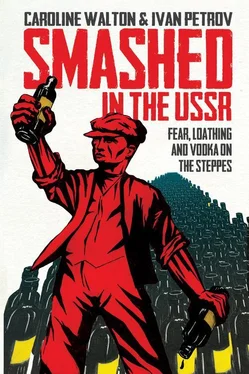
![Геннадий Марченко - Перезагрузка или Back in the Ussr. Книга 1. [СИ]](/books/53319/gennadij-marchenko-perezagruzka-ili-back-in-the-uss-thumb.webp)
